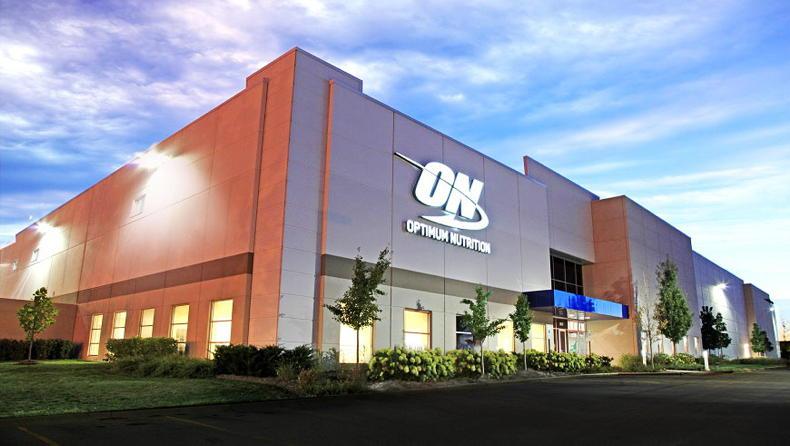Glanbia plc has reported a double-digit decline in profits for 2020 as COVID-19 affected all areas of the business over the past 12 months.
Announcing full-year results on Wednesday morning, Glanbia reported a 35% decline in operating profits for 2020 to just over €114m, as operating profit margins narrowed from 4.6% in 2019 to a very modest 3% last year.
Glanbia recorded a 27% decline in earnings (EBITA) for 2020 to €175m, as earnings margins narrowed to just 4.6%. Earnings per share (EPS) fell 16% last year to 73.8c per share. The sharp drop in profits includes exceptional charges of €32m, which mostly relate to once-off restructuring costs within Glanbia’s performance nutrition division.
Sales
Overall, Glanbia recorded total group sales of €3.8bn in 2020, which was down just 1% in the year.
Glanbia said a near 4% increase in sales prices helped offset a 2% decline in sales volumes last year.
Despite the reduced profits, Glanbia delivered a resilient performance from a cash management perspective.
Speaking to the Irish Farmers Journal, Glanbia managing director Siobhán Talbot said the group’s cashflow and inventory management was really disciplined last year as market conditions deteriorated.
She said Glanbia recalibrated its production volumes to prevent stock building and maximise cashflows. This disciplined cashflow management allowed Glanbia to maintain its full year dividend at 26.6c per share for shareholders, while also reducing its net debt by 20% in the year to just under €495m.
Talbot added that Glanbia’s balance sheet is in a healthy place, with a modest debt to profits ratio of just 1.7 times at year-end. The group’s cashflow management also allowed it to begin a €50m share buyback scheme in November, which is still ongoing.
The steady dividend will see the group pay out close to €78m in dividends later this year, with almost €25m of this going to the farmer-owned Glanbia Co-op.
Performance Nutrition
The biggest drag on Glanbia’s overall profitability in 2020 was its flagship performance nutrition division. The division recorded a 17% drop in sales to €1.1bn, while profits (EBITA) slumped almost 40% year on year to €91m. Margins in the business weakened to just 8% last year.
The performance nutrition division is made up of a portfolio of consumer-facing health brands made from whey proteins such as Optimum Nutrition, Isopure and Body & Fit. The division also includes the recently acquired Slimfast brand.

Glanbia's Optimum Nutrition plant in the US.
With gyms closed and most team sports cancelled for extended periods last year due to COVID-19, Glanbia’s performance nutrition division was hit exceptionally hard in the first half of the year when profit margins collapsed to just 3.7%.
However, the division showed significant improvement in the second half of 2020 as profit margins recovered strongly to 11.8% thanks to recovery in sales volumes and higher prices.
Nutritionals
In contrast, Glanbia’s nutritionals division recorded a more robust performance in 2020. Full-year sales for the division were up 7% year on year to €2.7bn thanks to a very strong performance from its US cheese business.
Despite the healthy sales growth, profits (EBITA) in the division were down 19% to just under €120m in 2020, as profit margins narrowed to 4.4%.
Within the division, Glanbia’s US cheese business recorded sales growth of 10% to €1.9bn and generated profits of €28m.
Glanbia has grown to become the largest cheese producer in the US market.
Talbot said the company has both retail and food service customers, and was able to divert more sales to retail customers as COVID-19 forced the closure of many restaurants last year.
On the nutritional ingredients side, sales were flat at €747m as profits fell 10% to €91m.
Joint ventures
Arguably the standout from Glanbia’s 2020 results was the bumper performance from its joint venture investments. Glanbia’s share of profits from its four joint venture businesses increased 27% last year to just under €62m.
This contribution proved crucial to Glanbia’s bottom line, with profits from joint ventures accounting for over 40% of the group’s total pre-tax profit of €144m. In 2019, joint ventures accounted for less than 25% of pre-tax profits.
Glanbia’s joint venture businesses includes Southwest Cheese in the US, Glanbia Cheese EU, Glanbia Cheese UK and Glanbia Ireland, which buys milk from Irish milk suppliers.
With 2020 now behind it, Glanbia has issued a positive outlook for 2021. The group is forecasting a 6% to 12% increase in profits (EPS) next year, which it says will be driven by a recovery in sales and profits in both of its core divisions, performance nutrition and nutritionals.
Talbot is particularly optimistic for a recovery in Glanbia’s flagship performance nutrition business over the coming years.
“If we look at the past year, COVID-19 is a global health crisis. And Glanbia is very much positioned as a healthy nutrition business. I believe our portfolio of performance nutrition brands is really well positioned in the post-COVID world for consumers that want to be healthy and are seeking to lose those extra COVID pounds,” she said.
We’re still not out of the woods when it comes to COVID-19, but Glanbia’s balance sheet is in good shape after an unprecedented 12 months of business disruption.
The next challenge for the group will be to take advantage of post-COVID opportunities that present themselves.
Glanbia plc has reported a double-digit decline in profits for 2020 as COVID-19 affected all areas of the business over the past 12 months.
Announcing full-year results on Wednesday morning, Glanbia reported a 35% decline in operating profits for 2020 to just over €114m, as operating profit margins narrowed from 4.6% in 2019 to a very modest 3% last year.
Glanbia recorded a 27% decline in earnings (EBITA) for 2020 to €175m, as earnings margins narrowed to just 4.6%. Earnings per share (EPS) fell 16% last year to 73.8c per share. The sharp drop in profits includes exceptional charges of €32m, which mostly relate to once-off restructuring costs within Glanbia’s performance nutrition division.
Sales
Overall, Glanbia recorded total group sales of €3.8bn in 2020, which was down just 1% in the year.
Glanbia said a near 4% increase in sales prices helped offset a 2% decline in sales volumes last year.
Despite the reduced profits, Glanbia delivered a resilient performance from a cash management perspective.
Speaking to the Irish Farmers Journal, Glanbia managing director Siobhán Talbot said the group’s cashflow and inventory management was really disciplined last year as market conditions deteriorated.
She said Glanbia recalibrated its production volumes to prevent stock building and maximise cashflows. This disciplined cashflow management allowed Glanbia to maintain its full year dividend at 26.6c per share for shareholders, while also reducing its net debt by 20% in the year to just under €495m.
Talbot added that Glanbia’s balance sheet is in a healthy place, with a modest debt to profits ratio of just 1.7 times at year-end. The group’s cashflow management also allowed it to begin a €50m share buyback scheme in November, which is still ongoing.
The steady dividend will see the group pay out close to €78m in dividends later this year, with almost €25m of this going to the farmer-owned Glanbia Co-op.
Performance Nutrition
The biggest drag on Glanbia’s overall profitability in 2020 was its flagship performance nutrition division. The division recorded a 17% drop in sales to €1.1bn, while profits (EBITA) slumped almost 40% year on year to €91m. Margins in the business weakened to just 8% last year.
The performance nutrition division is made up of a portfolio of consumer-facing health brands made from whey proteins such as Optimum Nutrition, Isopure and Body & Fit. The division also includes the recently acquired Slimfast brand.

Glanbia's Optimum Nutrition plant in the US.
With gyms closed and most team sports cancelled for extended periods last year due to COVID-19, Glanbia’s performance nutrition division was hit exceptionally hard in the first half of the year when profit margins collapsed to just 3.7%.
However, the division showed significant improvement in the second half of 2020 as profit margins recovered strongly to 11.8% thanks to recovery in sales volumes and higher prices.
Nutritionals
In contrast, Glanbia’s nutritionals division recorded a more robust performance in 2020. Full-year sales for the division were up 7% year on year to €2.7bn thanks to a very strong performance from its US cheese business.
Despite the healthy sales growth, profits (EBITA) in the division were down 19% to just under €120m in 2020, as profit margins narrowed to 4.4%.
Within the division, Glanbia’s US cheese business recorded sales growth of 10% to €1.9bn and generated profits of €28m.
Glanbia has grown to become the largest cheese producer in the US market.
Talbot said the company has both retail and food service customers, and was able to divert more sales to retail customers as COVID-19 forced the closure of many restaurants last year.
On the nutritional ingredients side, sales were flat at €747m as profits fell 10% to €91m.
Joint ventures
Arguably the standout from Glanbia’s 2020 results was the bumper performance from its joint venture investments. Glanbia’s share of profits from its four joint venture businesses increased 27% last year to just under €62m.
This contribution proved crucial to Glanbia’s bottom line, with profits from joint ventures accounting for over 40% of the group’s total pre-tax profit of €144m. In 2019, joint ventures accounted for less than 25% of pre-tax profits.
Glanbia’s joint venture businesses includes Southwest Cheese in the US, Glanbia Cheese EU, Glanbia Cheese UK and Glanbia Ireland, which buys milk from Irish milk suppliers.
With 2020 now behind it, Glanbia has issued a positive outlook for 2021. The group is forecasting a 6% to 12% increase in profits (EPS) next year, which it says will be driven by a recovery in sales and profits in both of its core divisions, performance nutrition and nutritionals.
Talbot is particularly optimistic for a recovery in Glanbia’s flagship performance nutrition business over the coming years.
“If we look at the past year, COVID-19 is a global health crisis. And Glanbia is very much positioned as a healthy nutrition business. I believe our portfolio of performance nutrition brands is really well positioned in the post-COVID world for consumers that want to be healthy and are seeking to lose those extra COVID pounds,” she said.
We’re still not out of the woods when it comes to COVID-19, but Glanbia’s balance sheet is in good shape after an unprecedented 12 months of business disruption.
The next challenge for the group will be to take advantage of post-COVID opportunities that present themselves.











SHARING OPTIONS